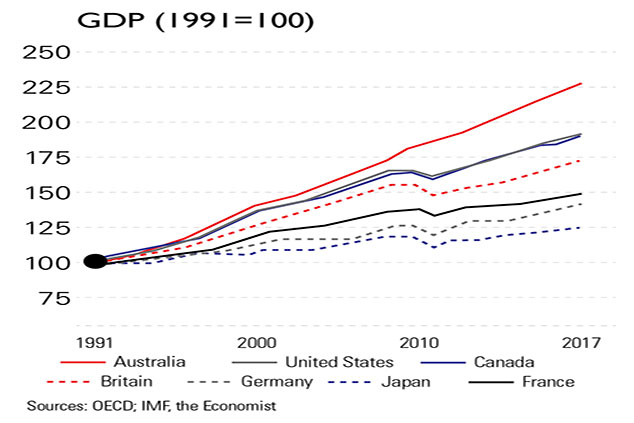
“The last time Australia suffered a recession, the Soviet Union still existed and the internet did not,” The Economist points out. Around 27 years of uninterrupted growth is a record for a developed country. But how much longer can the “wonder down under” last? One of the key drivers of growth was a housing bubble that allowed people to borrow against the rising value of their houses and thus spend more than their income. Throw in mortgages and household debt increased from 45% of GDP in 1996 to an eye-watering 120% at the end of last year. The housing bubble is now hissing air, which, along with overstretched household balance sheets will reduce the impetus from consumption.
Viewpoint
“We all talk about financial markets, but we don’t have genuine markets in the sense that they are free from coercion or intervention… Extensive interventions, directly and indirectly… regulation, legal uncertainty, the banishment of failure as a natural means to corrections… make the modern notion of markets a mockery. If we don’t have real markets, we have no price discovery. Our forefathers understood that without a free market in the price of money (interest rates) all calculation becomes false… the distortions create an unreal framework characterised by the booms that cause the ensuing busts… We have abolished the idea of failure – nature’s cleansing mechanism. As a consequence, we’ve lost real economic vitality. We’ve substituted finance for industry as the locomotive of economic growth. In GDP terms, it looks terrific. But it is neither enduring nor real.”
Tony Deden, Edelweiss Holdings